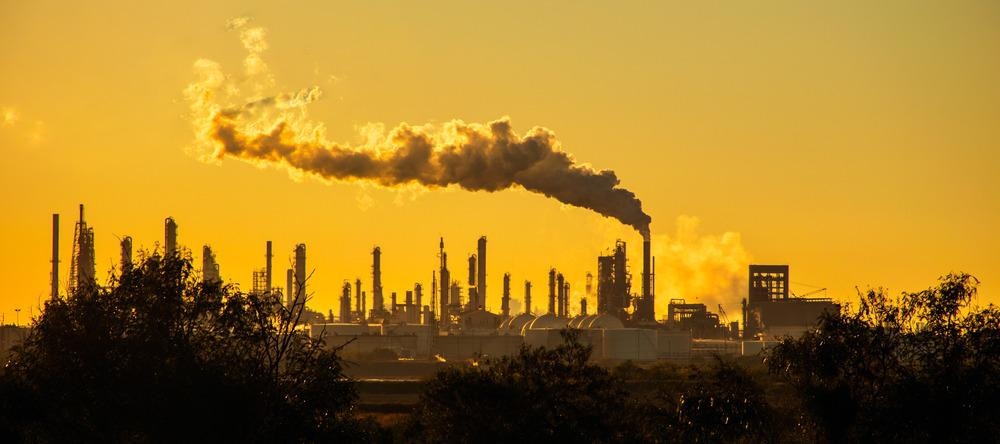Created by the high-temperature, pressurized breakdown of organic matter, biocarbons are being seen as a major weapon in the war against climate change.

Image Credit: Roschetzky Photography/Shutterstock.com
For the past 20 years, carbon dioxide emissions have increased by more than 3 percent each year. This rate of emissions has put our society on a path of irreversible climate change. Policy changes can act as an effective solution, but responsible scientific measures can also pull society back from the brink.
Biocarbons hold incredible potential as a climate change solution. The production and use of these materials effectively slow the speed at which carbon enters the atmosphere. Biocarbons have been made from agricultural waste, biomass crops, and organic waste. Using heat and pressure, these materials can be converted into green forms of fossil fuels like coal, natural gas, and petroleum. This simple conversion step helps to slow the release of carbon back into the atmosphere.
Biocarbon may sound like an exotic material, but it isn't. Many people use charcoal when grilling outdoors and this is a form of biocarbon. While wood could be used to cook food outdoors, biocarbon is a superior fuel source: Charcoal and other biocarbons have a higher heating value and greater energy density.
Further Reading: Graphene Dotted Biobased Carbon Aerogels
It is viable to produce biocarbons on a number of different scales – from the domestic level, all the way up to the industrial level. Industrial production is commonly based on a thermochemical conversion process called pyrolysis. This process involves high levels of heat and pressure. It results in the creation of solid, liquid and/or gaseous products. The solid biocarbon product of pyrolysis is a coal-like substance rich in carbon. The process can also yield a fuel gas that could potentially be used as a cleaner alternative to natural gas.
Industrial forms of biocarbon have a number of sustainable applications. Most notably, they can be used to provide energy as a green form of various fossil fuels. This use offsets emissions generated by the burning of fossil fuels, and it only returns about half of the amount of carbon into the atmosphere. Also, biocarbon has be easily used as a substitute fuel in coal-fired power plants, as it does not require any changes or upgrades to equipment.
Biocarbons can also be used as a soil additive in agriculture that can increase water and nutrient-holding capabilities. This in turn can increase agricultural yields, creating a positive feedback loop that further reduces the level of carbon dioxide in the atmosphere.
Betting on Biocarbon
Carbo Culture. Video Credit: Bloomberg New Economy/Youtube.com
Biocarbons have also gotten considerable interest from the metallurgical industry. This industry has traditionally relied on non-sustainable fuels like coal and coke. These fuels not only provide heat, but they also act as reducing agents in the production of silicon and various metals. In these production processes, oxygen is removed from mind ore or raw materials. This requires a fuel source of solid carbon that is able to generate high amounts of heat. The combustion of this carbon source strips away oxygen to enable the removal of byproducts.
Although biocarbons have not completely replaced coal or coke in these processes, they are growing in popularity in certain areas. For instance, biocarbons are increasingly being used for silicon production in Norway. While the switch to biocarbon in Norway has been fairly seamless, the fuel source has not been sourced from Norway but imported from Asia. This shipping significantly reduces the sustainability benefits of using biocarbon.
If biocarbon is going to replace traditional fuel sources in the metallurgical industry, it must meet industry standards. These standards are in place to ensure the quality of products and maintenance of production equipment.
Addressing the Challenges
Challenges to the greater adoption of bio carbons extend far beyond the borders of the metallurgical industry. In particular, there are major uncertainties around capabilities, production capacity and sustainability with respect to use at the international level.
There are many research efforts currently focused on addressing these challenges. Much of the research is focused on different sustainable sources of biocarbon. Some efforts have looked at biomass coming from the agricultural sector, including rapeseed, grape seed, hazelnut shells, chestnut shells. Other research efforts have focused on the conversion of organic wastes. Some efforts have focused on the production of bio carbons from plant products specifically ground for that purpose, including wheat straw, perennial grass, and different forms of algae.
If significant scientific breakthroughs can address these issues, they need to be followed up with policy changes that challenge the entrenched interests behind the continued use of fossil fuels.
Resources and Further Reading
Bartocci, P. et al. Biocarbon Production and Use as a Fuel. Production of Materials from Sustainable Biomass Resources. [Online] Available at: https://link.springer.com/chapter/10.1007/978-981-13-3768-0_10
Skreiberg, O. et al. Biocarbon – the new black gold? #SINTEFBlog. [Online] Available at: https://blog.sintef.com/sintefenergy/bioenergy/biocarbon-the-new-black-gold/
Supriya, A. et al. Biochar, a substitute for fossil fuels. National Conference on Processing and Characterization of Materials. [Online] Available at: https://iopscience.iop.org/article/10.1088/1757-899X/178/1/012022/pdf
Woolf, D. et al. Sustainable biochar to mitigate global climate change. Nature Communications. [Online] Available at: https://www.nature.com/articles/ncomms1053
Disclaimer: The views expressed here are those of the author expressed in their private capacity and do not necessarily represent the views of AZoM.com Limited T/A AZoNetwork the owner and operator of this website. This disclaimer forms part of the Terms and conditions of use of this website.